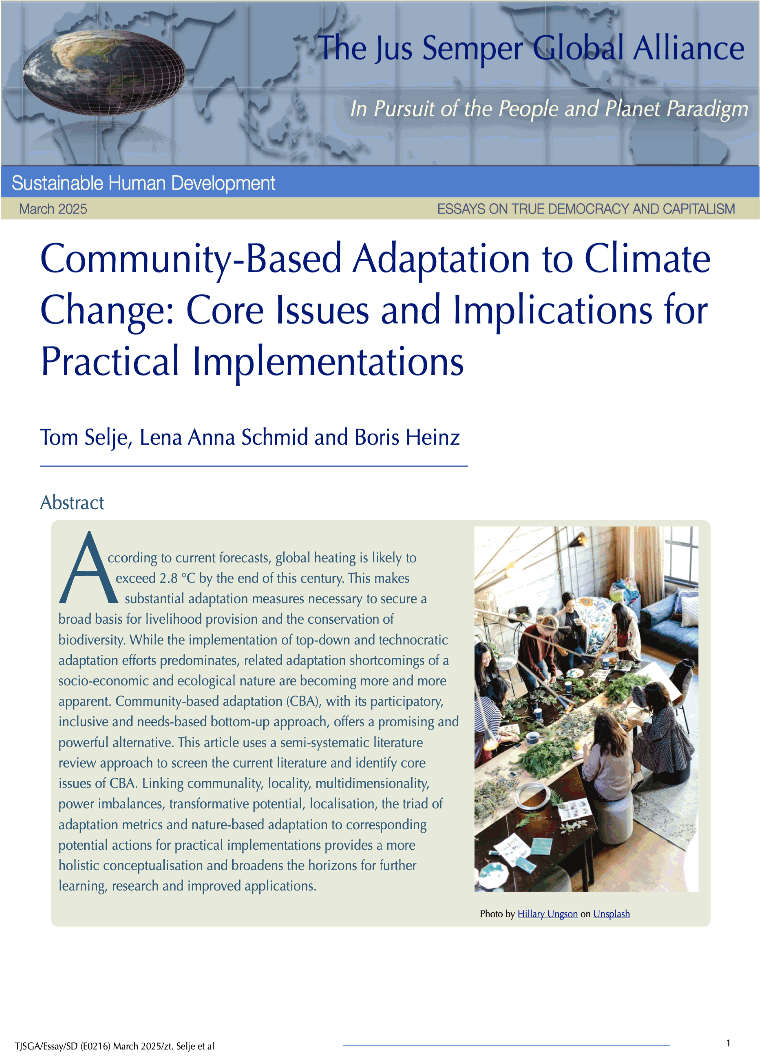Community-Based Adaptation to Climate Change: Core Issues and Implications for Practical Implementations
Tom Selje, Lena Anna Schmid and Boris Heinz
According to current forecasts, global heating is likely to exceed 2.8 °C by the end of this century. This makes substantial adaptation measures necessary to secure a broad basis for livelihood provision and the conservation of biodiversity. While the implementation of top-down and technocratic adaptation efforts predominates, related adaptation shortcomings of a socio-economic and ecological nature are becoming more and more apparent. Community-based adaptation (CBA), with its participatory, inclusive and needs-based bottom-up approach, offers a promising and powerful alternative. This article uses a semi-systematic literature review approach to screen the current literature and identify core issues of CBA. Linking communality, locality, multidimensionality, power imbalances, transformative potential, localisation, the triad of adaptation metrics and nature-based adaptation to corresponding potential actions for practical implementations provides a more holistic conceptualisation and broadens the horizons for further learning, research and improved applications.
For a full review of this essay, click here or on the picture to download the pdf file. |






